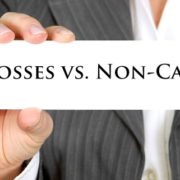What is a professional corporation?
What is a professional corporation?
A professional corporation operates much like a business corporation with few exceptions. A professional corporation has to abide by the regulations set by the Business Corporations Act (Ontario) and by the respective governing body. A professional corporation can-only carry on activities of its profession. A professional corporation must meet the requirements of its governing body and receive a Certificate of Authorization or equivalent.
Many professionals are allowed to operate their business as a professional corporation. Examples of professions that can operate under a professional corporation:
| Accountants | Lawyers | Medical professionals |
| Engineers | Architects | Social Workers |
| Veterinarians | Pharmacists | Chiropractors |
Historically professionals have operated through a sole proprietorship or partnership which limits tax planning and results in higher taxes (see “How to setup a business in Ontario” for more in depth discussion). Professionals have lobbied the provincial governments which have allowed them to incorporate their practices.
Does a professional corporation have limited liability?
In “How to setup a business in Ontario” we discussed that a corporation is a separate legal entity and it has limited liability. A professional corporation is slightly different and does NOT have full limited liability (exception for architects and engineers). A professional corporation only offers limited liability in certain areas. When it comes to business debts, the shareholder is only liable up to his or her investment in the business. However, in other circumstances such as malpractice, the corporate veil is lifted resulting in unlimited liability.
What are the advantages of setting up a professional corporation?
The income earned in the corporation is taxed at the corporate rate. The funds left over after paying taxes are considered retained earnings of the corporation. The retained earnings are distributed to the shareholders through dividends and are then taxed in the shareholders’ hands at their respective marginal tax rate. If a professional corporation meets certain tax guidelines it will pay tax at a reduced rate because it can take advantage of the following:
- Small Business Deduction (SBD)
A Canadian-controlled private corporation (CCPC) that carries on an active business in Canada can claimed the small business deduction of 17% on the first $500,000 of income. This deduction is not available if you carried on a Specified Investment Business or a Personal Services Business. This is further discussed in the CRA IT-73R6. - Lifetime Capital Gains Exemption (LCGE)
On Qualifying Small Business (QSBC) Shares every shareholder is entitle to the $800,000 LCGE. When it comes time to dispose of your shares in the professional corporation you can take advantage of the LCGE which will help lower your tax. - Tax Planning Opportunities
As mentioned earlier a professional corporation would allow more tax planning opportunities such as splitting income and paying a lower corporate tax rate. The professional is able to leave income in the corporation that they don’t need and can pay corporate tax of 15.5% on that money. The left over money in the corporation can be withdrawn as a dividend in the future years yielding a lower tax rate.
What are the steps in setting up a Professional Corporation?
- Get approval from your governing body
- Medical professionals – The College of Physicians and Surgeons of Ontario
- Pharmacists – Ontario College of Pharmacists
- Chiropractors – College of Chiropractors of Ontario
- Veterinarians – The College of Veterinarians of Ontario
- Setup the tax structure of your professional corporation
- Incorporate your business using the name granted and tax structure discussed
- Setup the books and records
Conclusion
A professional corporation provides more tax planning opportunities and should be considered. Please contact SDVC LLP for more information and help.










